2012 Nonfiction Contest Winner, judged by Sonya Huber
It’s August 2011, and the stock market has plummeted so much it makes my father say, “These are not normal times.”
It’s two months after New York State has legalized gay marriage, and it’s three days after both of my parents high-fived a recently married lesbian couple on a boat out to Singer Castle while crossing Alexander Bay. It’s just me and the folks, which wasn’t always a comfortable dynamic, but seeing as I’m almost thirty, and their youngest child, we’re getting there. In high school I resented my brother for leaving the house, leaving me alone with my parents, but now I feel lucky that I have a relationship with them separate of him. We have a funny dynamic just the three of us, and the awkwardness of it feels right.
I have never been to Niagara Falls before and I feel the anticipation of it, the greatness of it, and the Americana of it. I imagine Niagara flowing red, white, and blue, the ripples of water mimicking a flag in the wind as we speed down US Highway 81 South. Mom lets me sit in the front seat because of my long history of carsickness. I’m drinking chocolate milk and dramatically tossing in my seat trying to get comfortable. Dad lets me change the radio station after every other song. Eventually we find Elvis and both sing as loudly as possible, which makes Mom happy but annoyed. Mom and I make crazed statements about how we would love to drive for at least ten more hours very sarcastically, which eventually becomes “ISN’T THIS FUN!?” repeated in loud shrieking voices, which makes Dad laugh.
When I hang out with my parents I’m reminded I’m a child, or that I was one. I act childish despite my age, and despite how I act I’m sometimes treated like a child, not cruelly but rather out of habit. I complain more openly about temperatures, food, wanting to do things my way. They respond with eye rolls, and exasperation, as they should. If I try to add to factual conversations, my parents doubt my sources, my logic; sometimes my statements go unheard just because I’m the baby, and was always less knowledgeable. This is exacerbated by my current life choices. I’m back in school, and on my final year of pursuing an impractical degree in creative writing, a lifelong dream in a family of supportive scientists. I’m painfully single. On this trip I’ve been sleeping in the same hotel room as my parents, they’re in one bed, and I’m in the other. My father snores loudly, and my mother passive-aggressively coughs to try to wake him. I can’t sleep with this dynamic.
Two nights ago, in a hotel room further upstate, I couldn’t sleep and I started crying quietly. Tears streamed into my pillow as I lay on my back and tried to even out my breathing so no one suspected. I hadn’t imagined myself at twenty-eight years old sleeping in the same room as my parents on family vacations. I thought by now I’d have my own hotel room, with my own family in it. But I don’t. I thought I’d be enough of a grown-up to afford my own hotel room but I’m not. I make about a thousand dollars a month teaching English at a state university and have barely any savings. My heart quickened and I realized signs of a panic attack so I got up to try to break my circular thought patterns. In the bathroom I found blood in my underwear.
I thought of my niece and nephew. The last time I was in Upstate New York my nephew hadn’t even been conceived. I remember my sister-in-law’s face flush with joy.
“We’re trying again. Well, we’re not, not trying,” she had said as my niece napped in the hotel bathroom in a travel Pack ’n Play.
I can’t imagine myself as a parent and I can’t imagine myself married. It’s like a sunspot forms over my brain and everything goes white when I try.
* * *
After driving all day we get to Niagara just before sundown. We park the car and walk over the bridge to Goat Island.
Niagara is home to the most powerful falls in North America. The water flows south from Lake Erie through water-hollowed stone gorges, careening down the falls and eventually landing in Lake Ontario. Green is everywhere on Goat Island. Even the water is a famous green, the scientific explanation being “rock dust” and salts. The air is thick with water and hot with August. Sweat drips down our backs as we approach the Canadian falls.
The twin cities of Niagara, Ontario, and Niagara, New York, sit facing one another separated by the Niagara River Gorge and Goat Island (which falls on the American side). The Porter brothers bought the American Falls in 1805 from the State of New York at a public auction and built a mill. Augustus Porter obtained exclusive ownership of Goat Island in 1815 and gave partial ownership to his brother Peter.
The Porter brothers left Goat Island undeveloped probably more by chance than due to any bleeding-heart conservationist ideals. They famously lost their bid to have the Erie Canal run through their properties, which completely destroyed their business model for the falls. Plaques all over Goat Island herald the brothers for understanding and respecting the magic of Niagara; none of them talk about how they wanted to blast through the gorge walls and direct the Erie Canal traffic directly through it.
The noise of the falls fills up the air, and the mists off the falls are cool and smell slightly rotten, like most freshwater. The sheer size and power is mesmerizing, and the closer I walk, I notice Mom’s hair is sticking up. I point at her.
“Your hair,” I say. She points back.
“Yours too!” Then we both laugh at Dad who is taking photos, not realizing his cowlick is standing straight up.
“What!?” He turns, and then: “Oh, it’s electric!” he cries, holding his hands out and jerking them violently, pretending to get shocked. The electricity off the falls is so powerful that even through the mist every tourist has hairs that stick up except the pack of Buddhist monks who have shaved heads. They move quietly among us in their red robes like spiritual mimes, waving at children and grinning for photos. A few sit cross-legged in the blooming marigold patch while others dance with children on the lawn.
In order to reach nirvana one must eliminate the suffering inherent in life. What causes suffering according to Buddhism? Desire. Stop wanting, and then and only then do you realize how complete your life is. Your life becomes less about what you want, and more about what you already have. If I stop wanting what I want, I’ll be closer to nirvana, to complete happiness. I have to stop asking for love, stop asking for a family, and then I’ll be happy. But then I think about the Porter brothers and if they had never wanted Niagara, never wanted Goat Island. Maybe the only reason the monks are able to visit Niagara is because the Porter brothers led lives ruled by desire.
* * *
As it gets dark we walk to the American Falls, and I am reminded of a few months earlier, April: me and my two best friends posed on a rock in the middle of a stream in front of a man-made waterfall. We’re at a wedding venue in our hometown, Durham, North Carolina. Jenna is in a wedding gown, and Cristina and I are posed among other girls wearing knee-length green bridesmaid dresses. Jenna is marrying her long-time boyfriend Shawn. He stands along the railing watching his wife and her bridesmaids pose. Jenna and Shawn have had their break-ups, relationship-ending fights, and when Jenna wanted Shawn to move to North Carolina, he refused for two years and she waited him out. I was happy for them, I am happy for them, but as I sat at the head table while other bridesmaids sat across from their respective husbands and boyfriends, I couldn’t help but feel alone.
Jenna asked me to be a bridesmaid in her wedding when she visited me in New Mexico. We were walking along a path down by the Rio Grande when she said, “I was hoping you would be one of my bridesmaids.”
“You’re not like me,” Jenna had said, kicking some leaves on the trail. “You’re not gonna go down the aisle until everything is perfect.”
“Okay,” I said, “I’ll be your bridesmaid.”
The small waterfalls before the American Falls are called The Bridal Veil, and as we walk past them, a couple veers off the path. Through the trees, lit by the park lights, I see them kissing in the woods.
* * *
There are geographical places we have collectively deemed “romantic,” and like Paris and Venice, Niagara is on that list. Known for its honeymoon crowd, Niagara boasts its romantic mythology around town with restaurants, hotels, and wine tours. Some sources claim Niagara is on a similar geographic latitude as Bordeaux, France, and Napa Valley, which allows for deep, rich, lush wines. Others tell the story of Napoleon’s brother, Jerome Bonaparte, bringing his new bride to Niagara, creating the tradition of honeymooning there. Niagara’s tourism website states 50,000 honeymooners per year flock to Niagara. If that’s correct, that means on any given day there are probably at least one hundred and fifty newlyweds visiting the park.
At dinner, a couple sits nearby us. Two men, one slightly older, spiky gray hair, and a younger man, cargo shorts, tattoos, a hot-pink polo. The bill arrives and cargo shorts excuses himself to hit the bathroom. Spiky hair pays the bill, and wanders out of the restaurant and down the street. Cargo shorts returns in a panic. Have we seen his husband? They’re newlyweds. We point outside where his husband stands under a streetlight. Thank God! he mouths to us, and heads out the door. The local papers herald Niagara as being the classic honeymoon spot of old, and the new honeymoon spot for gay couples. Celebrate your rights at Niagara! they trumpet. All brunch spots serve later than usual to accommodate sleepy lovers, and checkout times are somewhat negotiable just in case one is up all night making love. Most rooms give complimentary small bottles of champagne. In the paper, there’s a list of gay-friendly hotels and venues for ceremonies. There are still no churches in Niagara, New York, that will marry a same-sex couple, but there are many gay-friendly chapels. On July 25th, 2011 at the brink of the American Falls, a mass LGBTQ wedding was held, with free cake and champagne.
My parents have been married thirty-seven years and just last year, through a series of miscommunications, my mom got on a ferryboat and left my dad on an island. They still have moments where they lose each other. I try not to think too hard about their marriage because, like any, it’s laced with love and moments of real and intense strife. But as their child, I always focus on the strife; I worry about it.
I want to ask my parents if they’ve ever seriously considered a divorce, or if one has cheated on the other, but there are certain questions I cannot bring myself to ask. I have a feeling the answer to both questions might be yes, but I cannot imagine my parents without each other despite the fact that they often don’t get along. My brother and I have observed that there are so many years of hardened resentment between them, so much pain, so much anger, and that they don’t have things in common anymore. They are at home alone, together, in the same house, but separate rooms. Maybe what I really have to wrestle with is the idea that this is normal, not scary, and in love there are no guarantees. Maybe it hurts because I’ve had to expand my understanding of what’s actually, really, always on the table in any long-term relationship.
When I came home from college my first semester, I noticed that my father was sleeping in the back bedroom of our house, and my bathroom was full of his things, his razors, his shaving cream, his back balms, and horse-hair brushes. I pretended not to notice. But I was desperately afraid I was quietly observing what I feared to have been true all along about my parents: that they don’t know how to be together, or that being together means also having to be apart from one another in specific ways that I had never considered before.
* * *
We head back into Niagara Park after dinner to catch Friday-night fireworks over the falls. Couples come out in droves. They hold hands, blocking the paths, and at night it’s worse. There’s two of each couple, the couple itself, and its deformed monster-shaped shadow that moves over the pavement paths and metal bridges. By the American Falls, people are shoving, pushing to get photos of loved ones among the fireworks that keep bursting into the sky. A man holds up his Chinese takeout box and chopsticks while his lover gleefully photographs him against the rapids. They fall into a sloppy smooch post-photo. Another couple is leaning over the rail side-by-side, playfully pushing each other. Two middle-aged white women kiss on the lips while holding a camera at arm’s length. An older couple, a man and woman, both with silver hair, ask for their photo to be taken by a stranger as they put their arms around each other.
I ask my mom to take a photo of me. In the photo, I am alone in front of a dark crowd save for one big red firework bursting in the sky above me, and Niagara River, which muscles behind me. My parents don’t ask for a photo of themselves, but earlier by the Canadian Horseshoe Falls I insisted on one, and the timid way my father peeks out from behind my mother with his hand on her shoulder seems to say a lot about where they are in their relationship. No longer fiercely attached like the younger couples that can’t stand being apart, they are casually connected with a kind of incuriosity, which makes room for other things in the photo, like the falls behind them. They no longer want to be the only thing in the photo.
I think about relationships. I think about the way the water at Niagara eventually wears down the limestone until nothing is left. In 50,000 years, they predict there will be no falls. In 50,000 years, who knows where marriage will be. I think about my mom and dad, how they wear on each other, how they scrape against one another. I don’t want to scrape, but I also don’t want to be alone. Maybe abrasions are natural. Two things can’t be in the same place at once without friction, without a reaction.
As we walk along the river at night, I ask a question of both my parents.
“What if you were a settler in the 1800s and you came upon the falls?”
“Can you imagine!?” Mom shivers.
“When you hear that noise,” my father says as he points to the sky and we all listen to the shushing of the falls, “you know to jump out of the boat.”
“But how would you know if you’ve never heard the noise before?” I press.
“Some things you don’t learn, you just know,” Dad says, and Mom nods quietly beside him.
* * *
About forty people a year plunge to their deaths at Niagara. The Canadian Falls are statistically less deadly than the American, although from looks alone, the Horseshoe Falls are much bigger, and appear more threatening. The churning, churning, churning seems to be the threat on the Canadian side. One woman who went over had eyewitnesses claim she was alive on impact. The pull of the falls made it appear like she was swimming. The undertow of the Canadian Falls has spit people out before, and some have survived. It’s the jagged rocks at the end of the American Falls that make the shorter plunge more deadly.
Public records date people going over both the Canadian and American Falls as early as 1829. Niagara has always been a daredevil’s playground. Over twelve people have gone over the falls for show. People in metal barrels, in wooden barrels, encased in rubber balls, ill-fashioned extra-flotation-outfitted boats, kayaks. One man strapped a bunch of floats to his body encased in fishing net; another went over the falls on a Jet Ski in 1990 to raise awareness for homelessness, but his parachute wasn’t properly attached to his body, and he plunged to his death. There is also a log of objects that have gone over the falls, including a cat named Lagara secured in a barrel in 1901, salmon, aluminum fishing boats, schooners, and disoriented water birds during foggy conditions.
Since 1850, over 4,000 bodies have been found in Niagara River: not all dead, but those that are, more often than not, have plunged to their deaths on purpose. In 2003 a man named Kirk Jones famously attempted suicide but survived, and gave conflicting interviews to reporters all over the country claiming he was pulling a stunt, then later confessed he was struggling with lifelong depression. There is no museum or plaque on site in Niagara State Park that talks about the history of plunges. The community of Niagara fears the press storm of each fall, and doesn’t want any random visitor to get an idea they can’t survive. Local editorials rant about the suicides and how unfair it is that people use the falls for that reason, but the fact remains that Niagara is counted on top-ten suicide-location lists both nationally and world-wide. Niagara shares these lists with other American tourist spots like California’s Golden Gate Bridge, or Cold Springs Canyon Arch Bridge, or Nevada’s Las Vegas strip, where people check into hotel rooms amidst the chaos to take their own lives. Niagara’s shadowy doppelganger to the west seems to be Sioux Falls, South Dakota, which has been noted for a spike in Native American teenage suicides. Niagara has been listed as high as number three and as low as number ten depending on data pivots. I wonder if the sheer volume of suicides in one geographic location makes it feel like a less lonely spot to die, if there might be comfort in that kind of company in a final moment. We have culturally, historically, statistically marked spots on a map where suicides should occur, places for self-inflicted death. Niagara Falls happens to be one of those places. Part of the beauty of Niagara is the power it has, and with that kind of power come people who don’t want to just admire it, but feel it, submit to it.
My great-grandfather, Samuel Richardson, my father’s grandfather, was found hanging in his own dairy barn three hundred miles north of Niagara Falls ninety-eight years ago. He was forty-six years old. There are two stories that are told about this. The first is that he was murdered, hung, by dairy companies that didn’t want my great-grandfather to continue organizing local farmers and unionizing them. The other is that he committed suicide. If he committed suicide, it’s because he fell in love with a woman who was not my great-grandmother, or so I’m told. My grandfather, Nilie Richardson, found him. He was only nine years old at the time. He was asked to fetch Samuel for dinner. I imagine him walking into the barn and calling my great-grandfather’s name a few times before he hears the beam creak.
I worry that this sadness runs in my family. I worry that I won’t find someone who cares about me more than I care about myself, and maybe the truth is I don’t care about myself very much.
I have a memory of asking my father if he ever thought about killing himself as he tucked me into bed. I must have been about eight years old. He didn’t blink; he said he had, but that he’d miss everything, and he wanted to know what happened next in his life, like a movie.
“Don’t you want to see the movie of your life?” he said, completely earnestly. When I nodded, he kissed me on the forehead and pulled the covers up around my chin. I still think about that concept, “the movie of my life,” when I feel hopeless.
Three days after our stay at Niagara, my father emails my mother and me an article. A Japanese exchange student, Ayano Tokumasu, has fallen over the Canadian Falls. Surveillance cameras caught her grainy image climbing onto the railing, straddling it for a photo, and at around 8:30pm, she stands up, loses her balance, and falls out of view.
How Stupid! my father has written as a caption to the article.
The movie of Ayano’s life has ended at Niagara, but, as the Buddhists believe, maybe she’ll get another chance to reckon with Niagara in her next life. Maybe she’s been fighting the power of Niagara for many lives already.
* * *
On the morning of our last day in Niagara, I read my parents their horoscopes over breakfast. My father the Leo will have something amazing happen to him. My mother the Scorpio will have to battle her judgmental ego. Mom asks me if certain signs are supposed to be together. I tell her Scorpios and Leos aren’t considered a natural astrological match.
“But you guys are really defying the odds,” I say with a smirk.
Dad puts his arm around Mom.
“Sort of,” he says, and they both laugh.
There are no bones about my parents’ bickering and sometimes fundamental disagreements, but they are together, a unit; they’ve weathered storms, sometimes the storms of each other. If my parents ever truly loved anyone aside from the other, it wasn’t enough to break them apart completely, and that matters. If they’ve ever wanted to leave, they never did, and that matters. My parents take vacations together, read to each other, and I’ve never seen them eat silently. They always have something to say to one another after thirty-seven years of marriage, and that matters.
In boxes of old family pictures there are some of my grandfather, Nilie Richardson, standing with a beautiful woman in front of cars, in fur coats, on the beach, in cow fields, her dresses whipping around her. My grandfather dated this woman for ten years. No one knows her name. I’m told she was a doctor, and that no one knows why they never married, but one day my grandfather ended it, and within the year, he met my grandmother and married her. When I was younger, more jealous, more fierce and strict about what I thought of as love, I wondered why my grandmother would have allowed those photos to remain. I’m older and I can see now that this was a part of my grandfather’s life that my grandmother couldn’t deny whether the photos were there or not. He once loved someone else. He made a life with my grandmother. Those things exist separately together.
I think about how we build lives with people, how we love those people differently than others. The project of marriage isn’t exactly set up for romance; it’s about endurance, longevity, compromise, understanding, and one can have all of those things without romantic love. If I try to be really honest with myself, I’m certain my parents are not soulmates, and there are probably better partners for them out there—an intense personality who’s a better listener for Mom, a playful optimist for Dad—but that’s a game I play on bad days. On good ones I think about laws of physics and how it’s a natural law that particle matter wants to become one, merge together, and I’m convinced my parents share particles that bind them indefinitely through shared experiences, daily routines, but, maybe, not love.
A year before traveling to Niagara, I sat at a bar with a colleague. The woman who took our drink orders had slept with my friend’s husband.
“Oh. Did you want to go somewhere else?” I asked, kind of shocked.
“Why bother? I want to stare at her,” she had answered. So we did. She got pregnant for the third time shortly after our drinks.
In the past three years, the majority of the people I’ve had relationships with have been married, or in long-term relationships. After sleeping with someone who was cohabitating with someone else, I was then asked to house-sit, where I slept in their bed; I was paid to. I fed their mutual pets, I watered their mutual plants. I was tasked to care for their things, their life, and in the back of my mind, I wondered if I was caring for the life they’d built together by coming between them. Creating a crisis that could bring them closer in the end. I was still an outsider. Once, sitting next to a married man, I felt my mouth fill up with saliva. Later, in bed, I kissed all his fingers, including the one with his wedding ring on it. A man with a very serious girlfriend bought me drinks, took my number, exchanged emails with me before telling me we could never meet in person again and he didn’t mean to start something he couldn’t exactly finish. I’ve become the relationship tester. I work alone. I test the love of others and try to detect something within myself. I don’t know if I’m doing this because I’m trying to see what’s really possible between two people—testing it—or if I’m trying to punish those that really believe in a one true love, or punish myself for wanting to believe in it. Maybe I want to prove to myself that this is normal because it’s what I know.
* * *
After breakfast, my parents and I are standing in line for the Cave of Winds Walk Niagara attraction. The Cave of Winds Walk has been an attraction since 1929 when an elevator was built into the gorge walls of the American Falls. The attraction takes tourists to man-made decks at the foot of the American Falls.
In the 1953 film Niagara starring Marilyn Monroe, The Cave of Winds Walk is featured at the climax of the film. In the film, a newlywed couple attempts to honeymoon in a cabin next to an older couple celebrating a wedding anniversary. Soon it’s revealed that the wife of the older couple (Marilyn) is having an affair, and hopes to kill her husband by plotting to have someone push him into the rapids of the American Falls. The newlyweds huddle together, fearing one day they might become as mad, cruel, and unloving as this other couple. The stench from the older couple’s troubles permeates the film, spreading, causing a convoluted tragedy where the seasoned couple uses the newlyweds to deceive and punish one another. The promotional photos from the film were the very snapshots of Marilyn Monroe that Andy Warhol used for his famous silkscreen of her face. The original movie poster claims, “Marilyn Monroe and Niagara, a raging torrent of emotion that even nature can’t control!” Marilyn had her own troubles with romantic love, and after her death being declared a “probable suicide” in 1962, it’s haunting to think about her walking the very path my parents and I stand on. Marilyn Monroe in many ways embodies the duplicity of Niagara: the search for romantic love and eventually the desperation to end that search.
My parents and I have put on giant yellow trash-bag-like slickers for the attraction we’re in line for. Dad and I squirm in our ponchos. Mom stands primly dwarfed by hers. Across from the line we stand in is a bronze statue of Serbian scientist Nikola Tesla that sits twenty feet high on a forked path. One direction leads to the American Falls, the other to the Canadian.
On the plaque at Tesla’s feet, I read that Nikola Tesla and I were born one hundred and fifty-five years and one day apart.
Tesla was an inventor, a mechanical and electrical engineer. His most famous work was with electricity, and his contributions to science allow us to harness the power of Niagara. Tesla was an eccentric who suffered from his own genius. He would wake in the night with visions of inventions complete with dimensions. Tesla has touched millions with his scientific work, and in as few as two hundred years, it will probably be more relevant, more useful than the institution of marriage.
Mom and I watch children and teenagers climb up onto Tesla’s lap for photos and then, almost on cue, a married couple enters the park and breezes past Tesla flanked by wedding photographers. The bride is smiling in white, the groom goofy in gray. I can feel us all rooting for them before we enter the attraction.
We take the elevator down one hundred and seventy-three feet to the Cave of Winds Walk. Our guide tells us the elevator shaft was hand-carved for fear that explosives would rupture the gorge walls.
“They would have,” my father responds immediately. The guide shrugs. Once down, we walk through a cement tunnel past people who are completely soaked from their experience waiting for elevators back up. The required sandals are squishy but firm on the slick pavement. Dad puts his yellow poncho hood up and ties it just below his bottom lip in a perfect bow, making only a small part of his face open to the misty gusts. His nose (distinctly large and French) and moustache are the most prominent. He always jokes that it’s petite while touching it gingerly. Once as a counter to this, I pointed out that the opposite side of his wineglass was greasy from his nose touching it every time he took a sip. He laughed genuinely while holding his glass up to the light.
On the decks we admire the sharp rocks at the bottom of the American Falls.
“I can see now why no one survives the American Falls,” Dad says, grinning devilishly. He points to a gray jagged pile of stones lying prostrate in the white water. As we walk up the steps, the spray from the falls covers us and I feel cleansed. Newly married couples struggle up and down the deck, laughing. One can’t leave the Cave of Winds without ascending to the hurricane deck. This is the closest to the falls, complete with one section where water pours torrentially onto the deck. The night before, Mom and I had looked down to see people rummaging in yellow ponchos like slow-moving ghosts. Most women sidestep the hurricane deck’s wettest spots. Mom and other brides avoid the falls and watch as their men and children take the American Falls head-on. Dad beckons me over to the torrential downpour.
“At least thirty seconds, kid,” he says, grinning. We shuffle over.
“WHOOO YEAH!” Dad cries out as the stuff hits our faces. I laugh at the excitement of it. It feels cold and wet, hard, but soft. The moment challenges our bodies as we move underneath the force of it. I can see my father out of the corner of my eye, and I feel connected to him as we submit, in our own way, to the falls. Mom is smiling at us and she touches my back affectionately when we approach her, dripping and wild-eyed. As we’re exiting the hurricane deck, a young couple reaches it.
“I don’t want to get too wet,” the woman says as her husband eggs her on.
“Honey, it’s freakin’ Niagara. Whether you like it or not, you’re already wet!”
That same day, in the Syracuse airport, my parents and I wait for separate planes together. They are going home to North Carolina, and I am going to New York City to visit friends.
I watch my mom’s hands as she fiddles with her purse. On her right hand she wears an old-fashioned sapphire-and-diamond ring that my father gave to her on her birthday. When my parents were first married my father couldn’t afford an engagement ring so he promised her one day he would get her something fantastic when he could afford it. This ring is the belated engagement band. He purchased it for her in London, England, after she admired it in an antique shop on a family vacation. None of us knew he had gone back to get it for her. Later that year, on her birthday, when he produced the jewelry box we were all surprised to recognize the ring from the shop. I was only ten years old, but I remember this exchange between my parents. My mother’s genuine surprise, the slight tremble that ran through her, and then how she grabbed my father, and French-kissed him at the dinner table in front of my brother and me. This was shocking. I remember feeling jealous that my parents were so together in that moment. Maybe for the first time, I realized there was an additional layer of knowing that I could not wriggle between, could not understand, could not be a part of, and its origin lay beyond me. I still wonder who might be my eventual partner, who will surprise me even after years of togetherness, or if the surprise is that I will be alone.
My parents were married in 1974 in a small stone church in southern Virginia. Cows that grazed the field outside the church poked their heads through the church windows, mooing in approval during the ceremony. My mom wore a daisy crown atop long blonde curls, my father a powder-blue leisure suit and giant sideburns. They were too poor to honeymoon at the time, but when they got back to their hotel room that evening, my father and mother sat outside with Cokes and MoonPies from the hotel vending machine and contemplated the rest of their lives together.
My parents are individuals, and I have individual relationships with them, but I’m a direct result of the ways in which they’ve agreed to be together, and there’s pain and beauty in that.
I ask my mom to watch my bag while I go to the bathroom. I’m taking my time at the sink washing and lathering my hands up; I’m dawdling, not on purpose, but I’m slightly aware I’m taking too long. When I emerge my mother is at my gate with my suitcase, panicked and shaking her head at the flight attendants, then pointing to me. She’s held the plane for me.
I walk past Dad who gives me a hug and a kiss, telling me, “Have fun, kid, and you gave your mother a heart attack.” I know that this is part of my charm and frustration for him. I know he wants to hug me and shake me at the same time.
“I would have made it,” I say under my breath. The attendants watch as I approach Mom who gives me a look I’ve seen many times. The you’re killing me, but I love you, you helpless thing look.
“I would have made it,” I tell her as I hug her.
“I love you,” she says and kisses my mouth. I walk down the long corridor to the plane without looking back. I sit down and buckle my seat belt and look over the cold metal wing of the plane. I probably wouldn’t have made it. I should have just said, thank you.

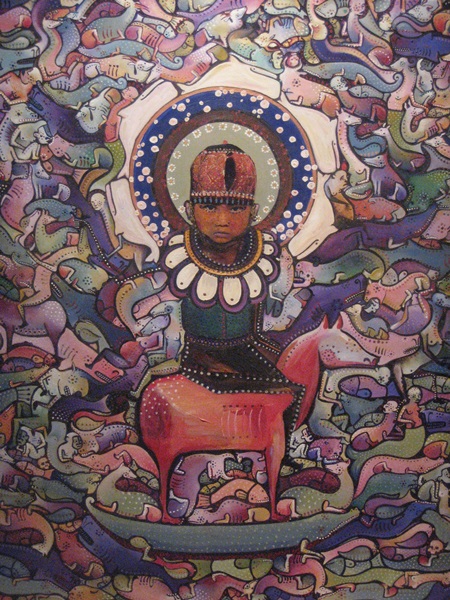
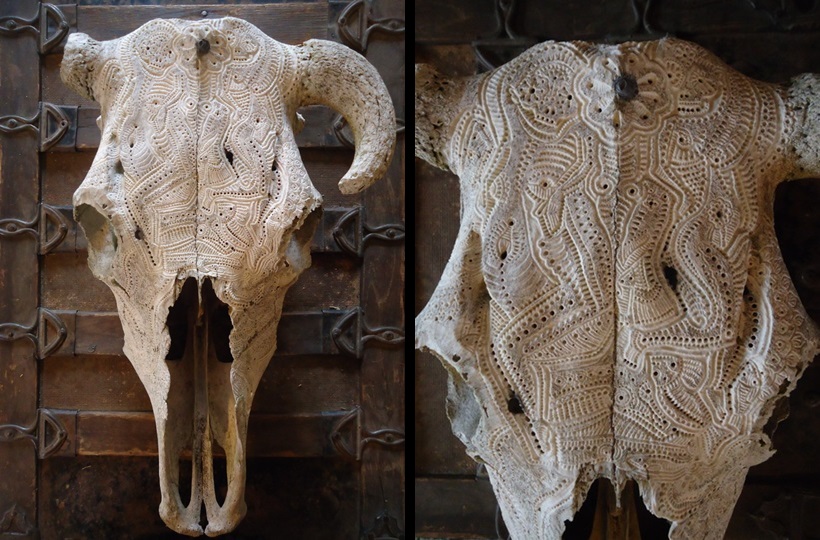
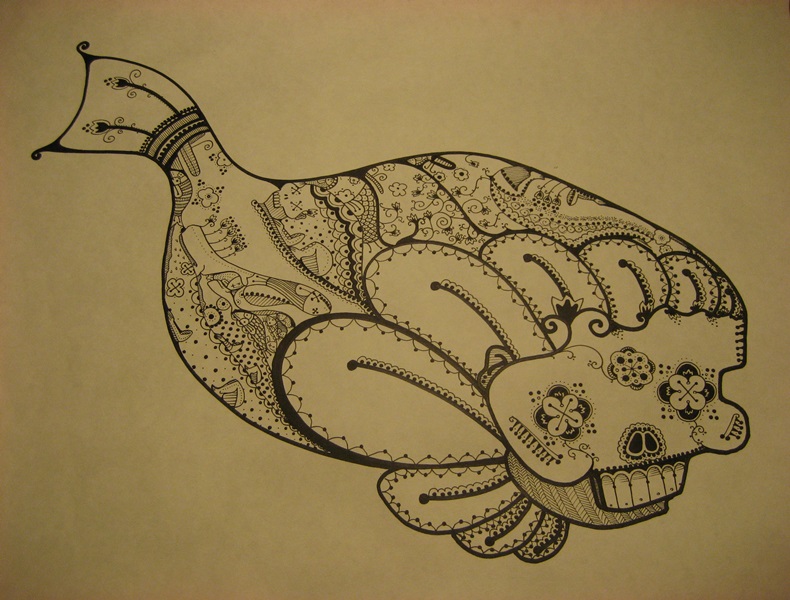


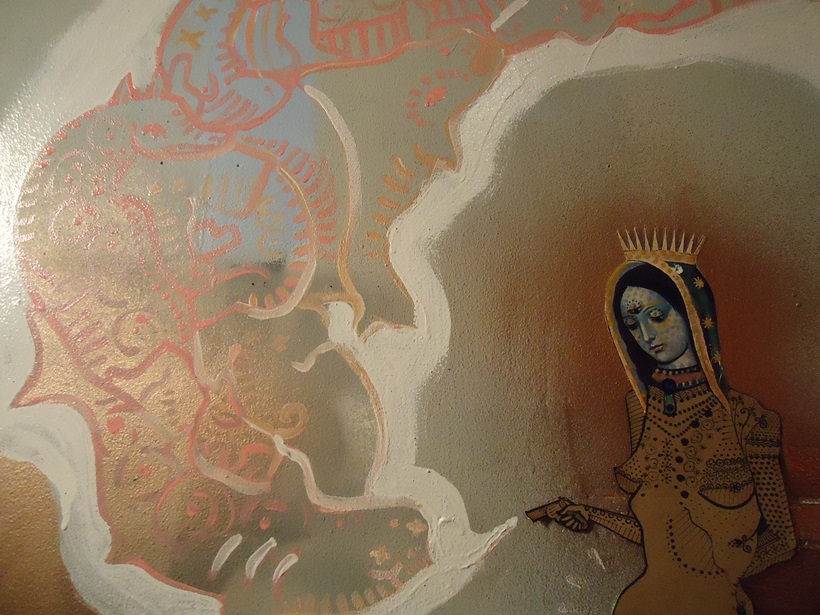
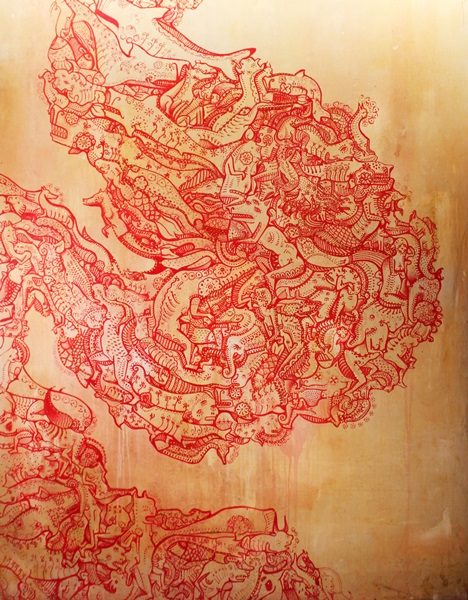

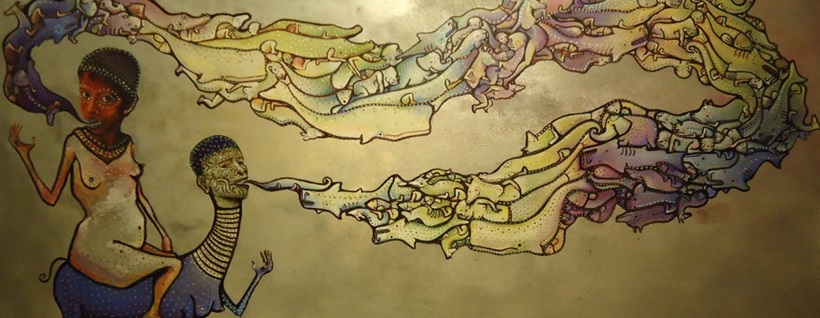 Breath.
Breath.